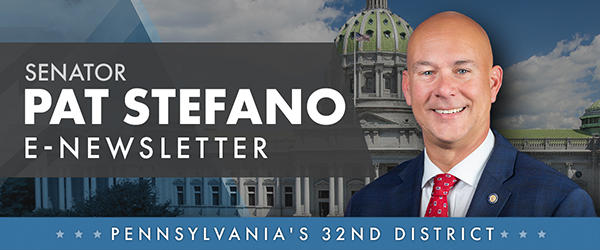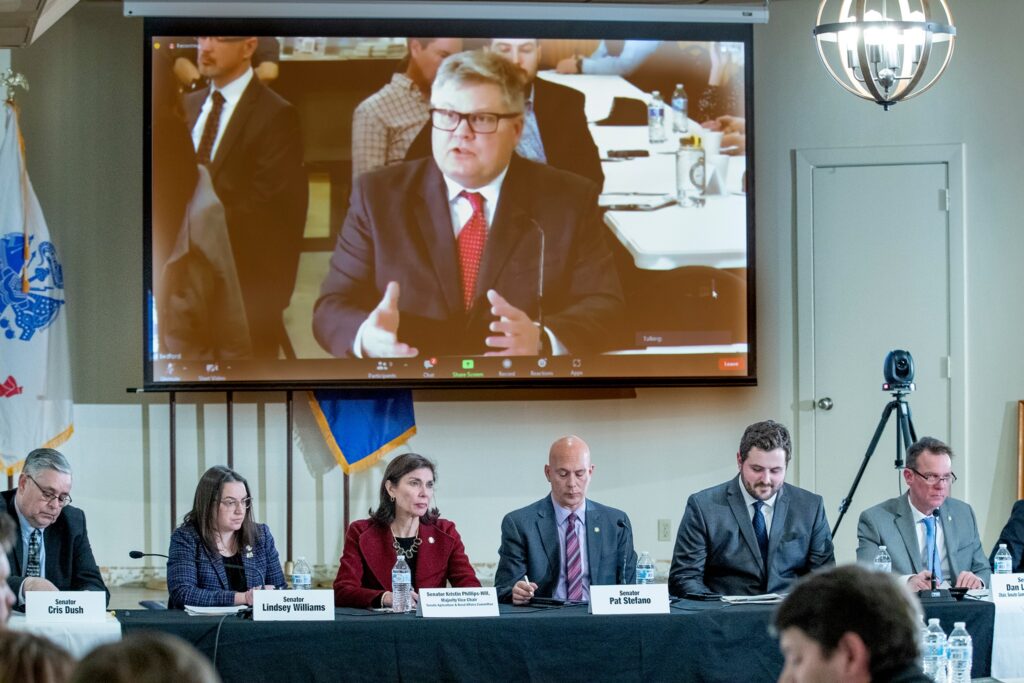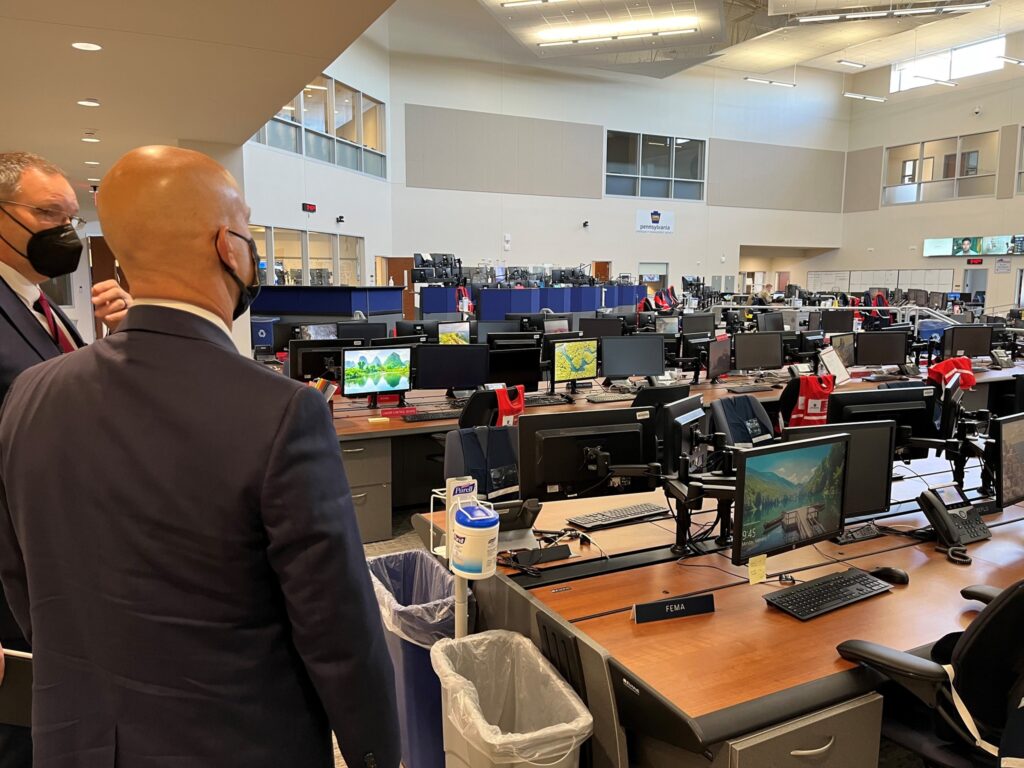
|
|
In this Update:
Gov. Wolf Sends General Assembly Budget Proposal with Huge Spending Increases
In an address to the General Assembly this week, Gov. Tom Wolf proposed a $45.7 billion 2022-23 state budget that would increase General Fund spending by $4.5 billion. The new spending includes $2 billion in federal American Rescue Plan Act funds. Including the expenditure of federal dollars returned to Pennsylvania during the pandemic, the governor’s budget represents a 10.9% increase in spending. According to Senate Appropriations Committee budget projections, the governor’s plan will produce a $1.3 billion deficit for the 2023-24 fiscal year and create an even bigger bill for Pennsylvania taxpayers to pay long after the governor leaves office: a $13 billion deficit by 2026-27. The Senate will hold a series of public hearings in the coming weeks to review the spending plan and produce a more responsible budget proposal that funds essential services while shielding taxpayers from the consequences of reckless overspending. Legislation Boosting Aid to First Responders Set for Enactment
Building on a promise to provide Pennsylvania’s frontline heroes with relief, the Senate approved legislation to provide $25 million in federal funding to support EMS providers. Since January, the General Assembly has advanced measures totaling $250 million for frontline workers, health care providers, emergency services and EMTs. The passage of Senate Bill 739 builds on the General Assembly’s recent efforts to distribute $225 million in federal relief funds for hospital and behavioral health providers to retain and recruit staff. The measure also would ensure that all fire companies – whether volunteer, paid or combination department – are eligible for the low-interest loans through the Fire and Emergency Medical Services (EMS) Loan Program. Voters approved expanding the program in a 2021 ballot question. Stefano: Veterans Affairs & Emergency Preparedness Committee Moves Four MeasuresToday, the Senate Veterans Affairs and Emergency Preparedness Committee reported four bills to the full Senate, according to Sen. Pat Stefano (R-32), committee chairman. Senate Bill 1016, sponsored by Sen. Doug Mastriano (R-33), would permit the awarding of military decorations to members of strategic allies. “Pennsylvania has had a long-standing relationship with Lithuania [since 1993] through the National Guard’s State Partnership Program. As military tensions arise across the globe, it’s important for us to be able to recognize strategic allies, like Lithuania, and their exemplary service that they have provided to our Commonwealth,” said Sen. Stefano. Senate Bill 1027, sponsored by Sen. Stefano, would permit junior firefighters, aged 17, to train on live fires – with their parent’s permission and local fire chief’s permission. “This legislation, which is a result of discussions with my local fire companies, is important for recruitment and retention purposes as it will help our junior firefighters complete their training prior to turning 18,” said Sen. Stefano. Senate Bill 1028, sponsored by Sen. Stefano and Sen. Devlin Robinson (R-37), would establish the Purple Star School Program for military-connected students. “The Purple Star School Program is a state-sponsored recognition designed to acknowledge a public or charter school that has committed to supporting the unique educational and social-emotional needs of military-connected students,” said Sen. Stefano. Senate Bill 1047, sponsored by Sen. Chris Gebhard (R-48), expands the State Armory board’s ability to rent or lease out building and allows the board to oversee the utilization of its 89 readiness centers and 18 field maintenance shops. “This legislation modernizes the State Armory Board statute and clarifies the powers and authority of the Adjutant General in conjunction with the State Armory Board to ensure greater collaboration,” said Sen. Stefano. Having received unanimous support from the committee, all four bills now advance to the full Senate for consideration. Click here for a link to the video of the hearing. Updated Agritourism Guide Available to Farmers
Agritourism activities – like corn mazes, hayrides, on-site dining/retail operations and educational programs – are a growing part of Pennsylvania’s agriculture economy. The Center for Rural Pennsylvania has an updated 128-page handbook to help farmers navigate agritourism issues. Last year, the General Assembly approved a new law to better protect farmers who offer these kinds of agritourism activities. Grants Available to Reduce Underage and Dangerous Drinking
The Pennsylvania Liquor Control Board (PLCB) is accepting applications for grants to fund programs that discourage and reduce underage and dangerous drinking and promote a message of responsible alcohol consumption by those of legal drinking age. Eligible grant applicants include school districts and institutions of higher education (including technical, trade and post-secondary establishments), community organizations, municipal police departments, municipal officials/representatives and nonprofit and for-profit organizations. The deadline to apply for grants is March 18. Applications and guidelines for submission are available on the PLCB website. Monday is National Donor Day
Monday isn’t just Valentine’s Day, it’s also National Donor Day. Many health groups use this day to sponsor blood and marrow drives and organ/tissue sign-ups. Organ donation saves lives and saves money, cutting health care costs by as much as two-thirds and saving Medicare millions of dollars every year. The General Assembly passed the Living Donor Protection Act last year, prohibiting insurers from discriminating against an organ or tissue donor. It also ensures family and medical leave is provided for an eligible employee for the preparation and recovery necessary for donation surgery. In addition, it requires development of informational materials relating to living donors and the benefits of live organ and tissue donation. Around the District
On Wednesday, I had the opportunity of participating in a Senate hearing on Chronic Wasting Disease (CWD) in Bedford County. The Senate panel included; Senator Dan Laughlin, Majority Chair of the Senate Game and Fisheries Committee; Senator Elder Vogel Jr., Majority Chair of the Senate Agriculture and Rural Affairs Committee; Senator Jim Brewster, Minority Chair of the Senate Game and Fisheries Committee; Senator Judy Schwank, Minority Chair of the Senate Agriculture and Rural Affairs Committee; Senator Kristin Phillips-Hill, Senator Lindsey Williams, Senator Cris Dush, Senator Devlin Robinson, Senator Scott E. Hutchinson, and myself. Representatives from the Pennsylvania Game Commission, Pennsylvania Department of Agriculture, National Deer Association and Pennsylvania Deer Farmers Association testified to the panel on what can and is being done to combat this disease from further spreading throughout Pennsylvania’s white-tailed deer population. For more information: https://www.pgc.pa.gov/…/Pages/ChronicWastingDisease.aspx
On Monday, I had the pleasure of touring PA Emergency Management Agency‘s (PEMA) facility in Harrisburg. PEMA helps Pennsylvania communities and citizens mitigate against, prepare for, respond to, and recover from emergencies including natural disasters, acts of terrorism, or other human-made disasters. Thank you PEMA for all you do to keep the citizens of Pennsylvania safe.
|
|
|




Want to change how you receive these emails? 2025 © Senate of Pennsylvania | https://www.senatorstefano.com | Privacy Policy |






